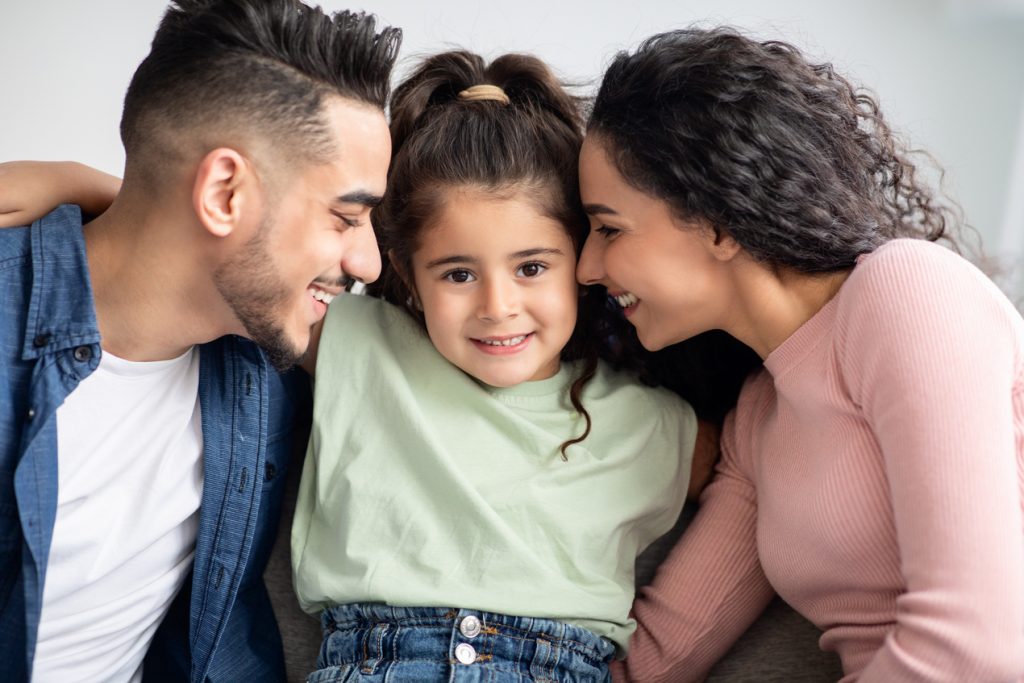As a parent, you wield the power to quite literally shape the way your child turns out. While you do need to keep this in mind, you also need to be wary of not letting this fact intimidate you.
Parents, especially new ones have the tendency to be alarmed over every single thing they do or over things they think they aren’t doing. For more than half a century, the pioneering model introduced by developmental psychologist Baumrind has guided our understanding of the styles of parenting.
This understanding was further expanded as a result of the additions made to the model by Maccoby and Martin a few decades later. The bottom line, however, that any model of parenting underscores is that children are extremely impressionable. Every single thing you do, and every single way you make them feel, has the ability to form a rather permanent part of them – you can leave a lasting impression.
How do you parent a child the right way? Is there a right way to parent a child? How do you ensure that you are being the best parent you can be and that your child will grow up to be a remarkable and responsible individual?
While these are some questions that cannot be easily addressed, here are the answers to other fundamental questions that will broaden your understanding of the practice of parenting, and offer you the space to possibly try and figure out the answers to those questions yourself.
How many styles of parenting are there, and what are they?

The original model explaining the styles of parenting consisted of three distinctive styles. These include the implacable Authoritarian style, the undemanding Permissive style, and the middle ground, the Authoritative style. This model, however, was expanded following the inclusion of the fourth style of parenting – the insouciant Neglectful/ Uninvolved style.
What is authoritarian parenting? What are its possible consequences?
An authoritarian parent is someone who values their image as a figure of authority more than anything. They want their children to look at them more as a powerful individual with authority and less as warm, nurturing figures. Here are some of the characteristics and the respective consequences of the authoritarian style of parenting:
- Authoritarian parents have little regard for the opinions and feelings of their children.
- Children tend to develop the feeling that their opinions and what they have to offer have no value resulting in a slow destruction of the child’s self-esteem.
- They believe the child has to follow every order given by the parent and are not interested in negotiations nor getting to know how the child perceives a situation or a decision.
- The child learns to never express their feelings and becomes less and less assertive, even in situations where it may be necessary.
- They tend to have high expectations for their children and can hardly stand to see them fall short of these expectations.
- The self-worth of the child starts getting tied up with their achievements and when encountering a failure the child starts feeling inadequate.
- They expect to be in complete control of their children and their lives, not even offering their children the liberty of making their own decisions. In extreme cases, this can lead to micromanagement of their children’s lives to an unhealthy extent, and a substyle of parenting called helicopter parenting.
- This can turn around and become counterproductive, with the children struggling to assert their independence and rebelling against the rules set for them. They may lie, sneak out, and feel that they have no independence.
- They are not known for offering positive reinforcement and feedback. Instead, they resort to techniques like punishments, harsh disciplining, and even, shaming.
- This again does no good but only assaults the self-image of the child.
What is authoritative parenting? What are its possible consequences?
An authoritative parent sets rules and establishes consequences like the authoritarian parent, but also takes into account the feelings and opinions of the children. They give importance to establishing and maintaining a positive relationship with their children. Here are some of the characteristics and the respective consequences of the authoritative style of parenting:
- They set rules and establish consequences but also make sure that these rules are reasonable and explain these to their children.
- The children grow up learning the importance of consequences of their behavior and learn to take responsibility for their actions.
- They take into consideration the feelings and opinions of their children.
- The children develop a healthy sense of self and are confident enough to assert their needs and opinions.
- They offer their children the space to make their own decisions.
- The children learn to make informed decisions by weighing the implications of all possible decisions and learn to be careful about them.
- While they may have high expectations for their children, they do not express contempt or disapproval in the case that they fail to fulfill them. They offer their children the support that they will need in fulfilling these goals.
- The children develop a healthy sense of self-efficacy and believe that they can exert control over things.
What is permissive parenting? What are its possible consequences?
Permissive parents are the type of parents for whom being loving and nurturing comes before being an authoritative figure. They may make rules but rarely follow through and make little or no attempt to discipline their children.
Here are some of the characteristics and the respective consequences of the permissive style of parenting:
- They believe that their interference in the child’s life is unnecessary and are rather lenient in their parenting.
- The children may be left feeling like they don’t have anyone to rely on and to turn to in times of adversities.
- They rarely establish rules and consequences for the actions of their children. The children may grow up to be irreverent and disrespectful of rules, in general.
- Children may not learn the importance of the consequences of their actions and do not follow societal norms, having an indifferent attitude towards authority. This may result in the children struggling to exercise self-control and self-regulation, and a very lack of self-discipline in some cases.
- They want their children to look at them as a friend, to whom they can confide in anything.
- They may end up being over accepting of their children’s decisions and fail to keep the required check on them.
- With respect to parental expectations, permissive parents have very low or no expectations for their children.
- As a result, the children may not have adequate motivation to succeed and excel in life and instead may show poor performance in different facets of their lives.
What is neglectful parenting? What are its possible consequences?
The fourth style of parenting is the neglectful or uninvolved style which is characterized by a complete lack of involvement in the child’s life. They lack concern for the actions and behaviors of their children and fall short in offering nurturance and support to them. Here are some of the characteristics and the respective consequences of the neglectful style of parenting:
- They don’t pay attention to the actions of their children or who their children spend time with.
- The children develop a sense that nobody cares for them, that nobody cares what they do. They feel that there is no one to even check up on them or take care of them. Hence, they may go on to develop behavioral problems and get into more serious trouble outside the home, like juvenile delinquency.
- They are emotionally aloof and do not really encourage talking about feelings and spending time with their children.
- Children may grow up developing unhealthy means of coping with their emotions.
- The uninvolvement extends to an absence of support and guidance for the children.
- The children may face other serious problems like anxiety and depression as a result of this.
So which one of the parenting styles is the best and most effective? And why is it the authoritative style of parenting?
The one recurring theme that occupies the middle ground in all of the behavioral sciences is how different humans are. From one another, from time to time, we vary indiscriminately. Hence, attempts to constrict the variegated and unique characteristics of humans, like the styles of parenting, may not justify the idiosyncrasies characteristic of us.
That also implies that one style of parenting may not, necessarily, be “the right way” for everyone. How you decide to deal with your children may not be limited to but expands beyond the existing styles of parenting, and consists of a lot of other facets.
These may include a wide variety of factors, including attributes that are of your own, qualities that belong to your children, the very styles of parenting that you were subjected to as a child, and the like.
The best thing that you can do as a parent is to often take the backseat and ensure that you provide your kids a safe environment to explore and learn things. You need to understand this at the appropriate time and make way for your protection and coddling to turn into the support and encouragement that they will need.
You need to be able to establish the balance between being involved in the lives of your children and allowing them the privacy that they are entitled to. You need to learn to offer them support and protection and to avoid neglecting them altogether.
The key in parenting is to be able to identify that balance and hold on to it. Hence, the best style of parenting among the four, that is conducive to the growth of both you as a parent and your children has to be the authoritative style of parenting. It can be considered to be the most healthy as it ensures that this balance exists.
Conclusion
At most times, parents get so engrossed in the lives of their children, that they forget to pay attention to their own. As a parent, remember to maintain your independence as well, and to not tangle up their identity with that of your children.
Remember it is important for you to be the best version of yourself if you want to bring that side out of your children. When you give adequate importance to growing as an individual, the growth of your children will occur concomitantly.





